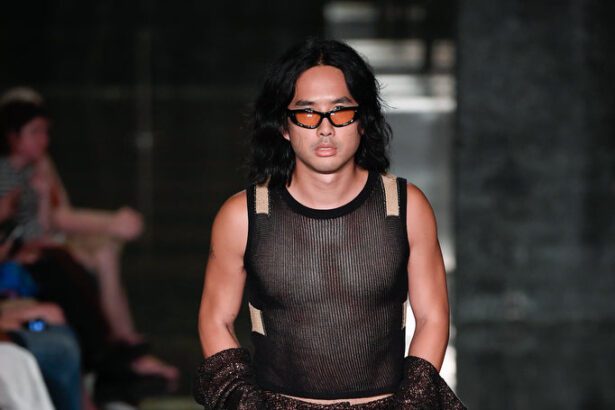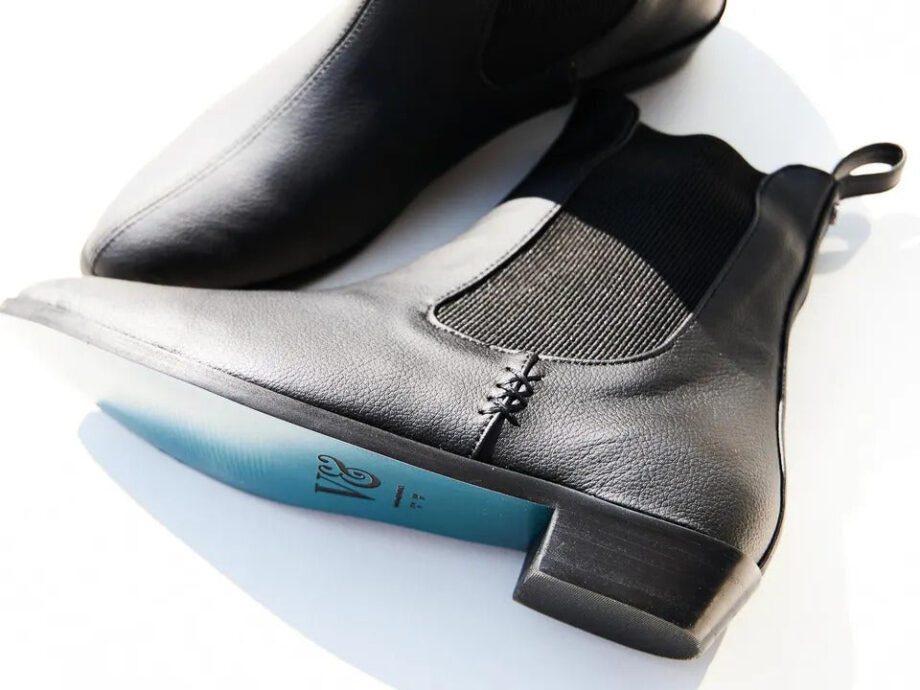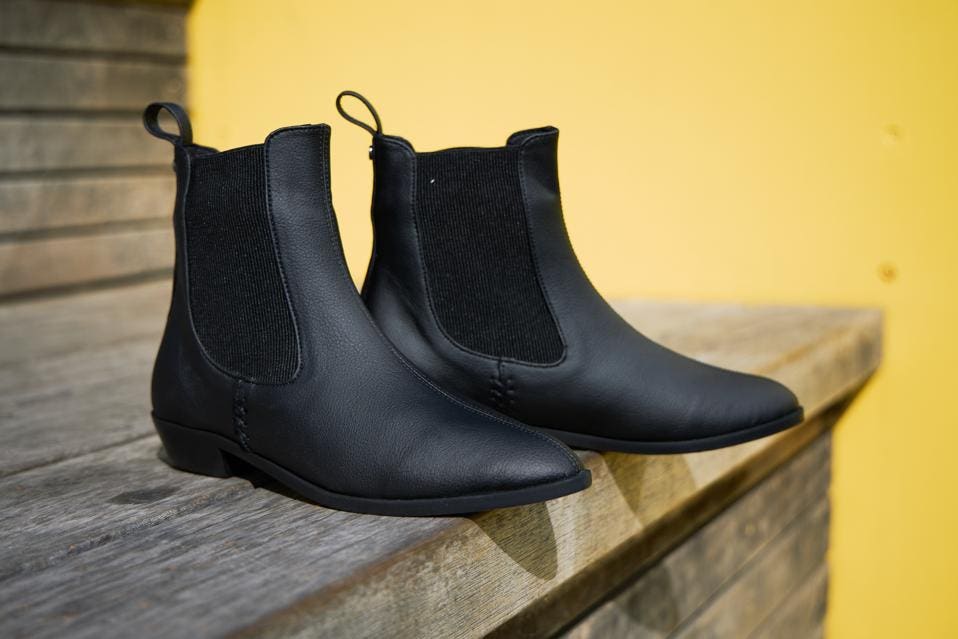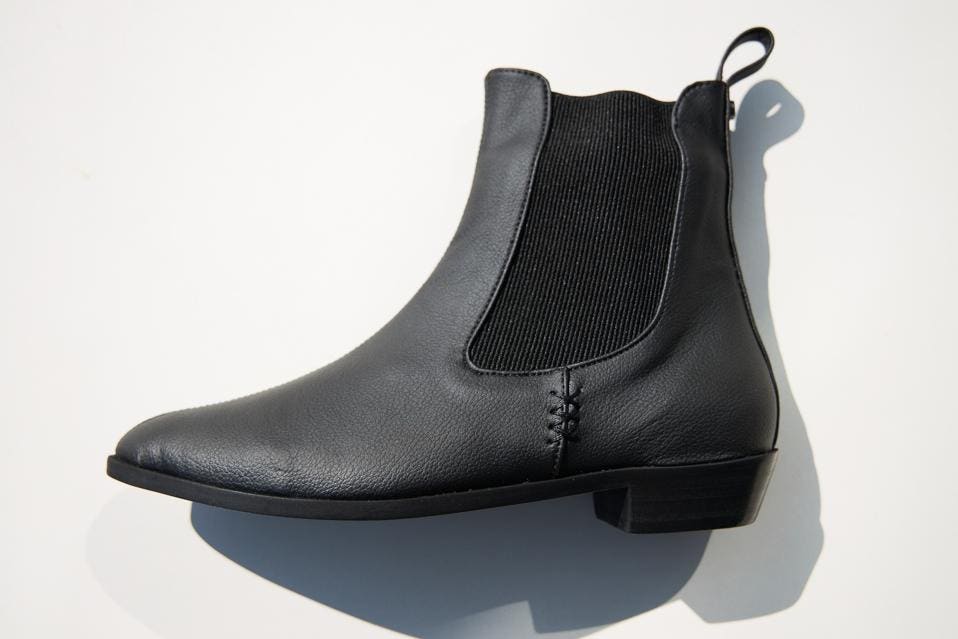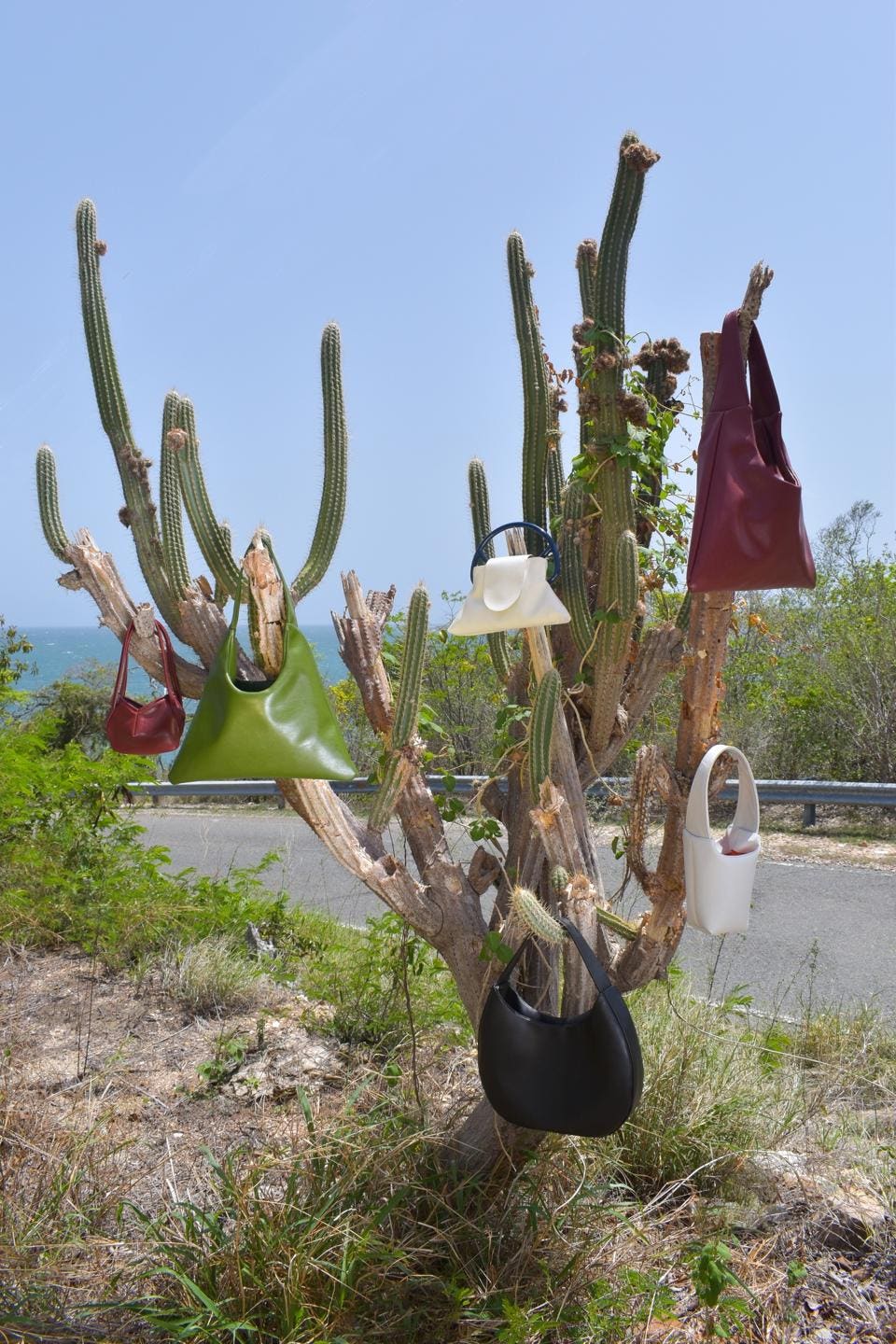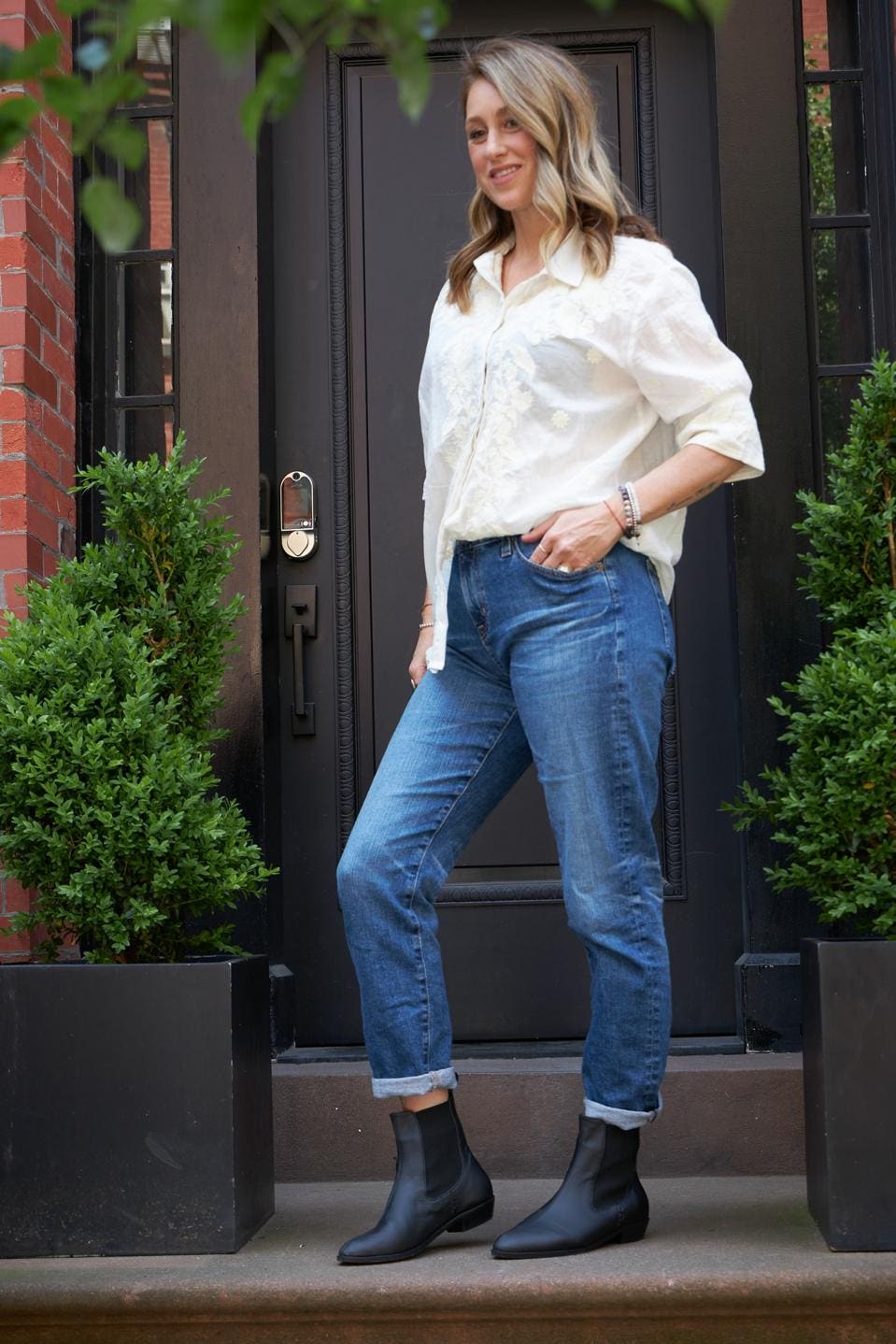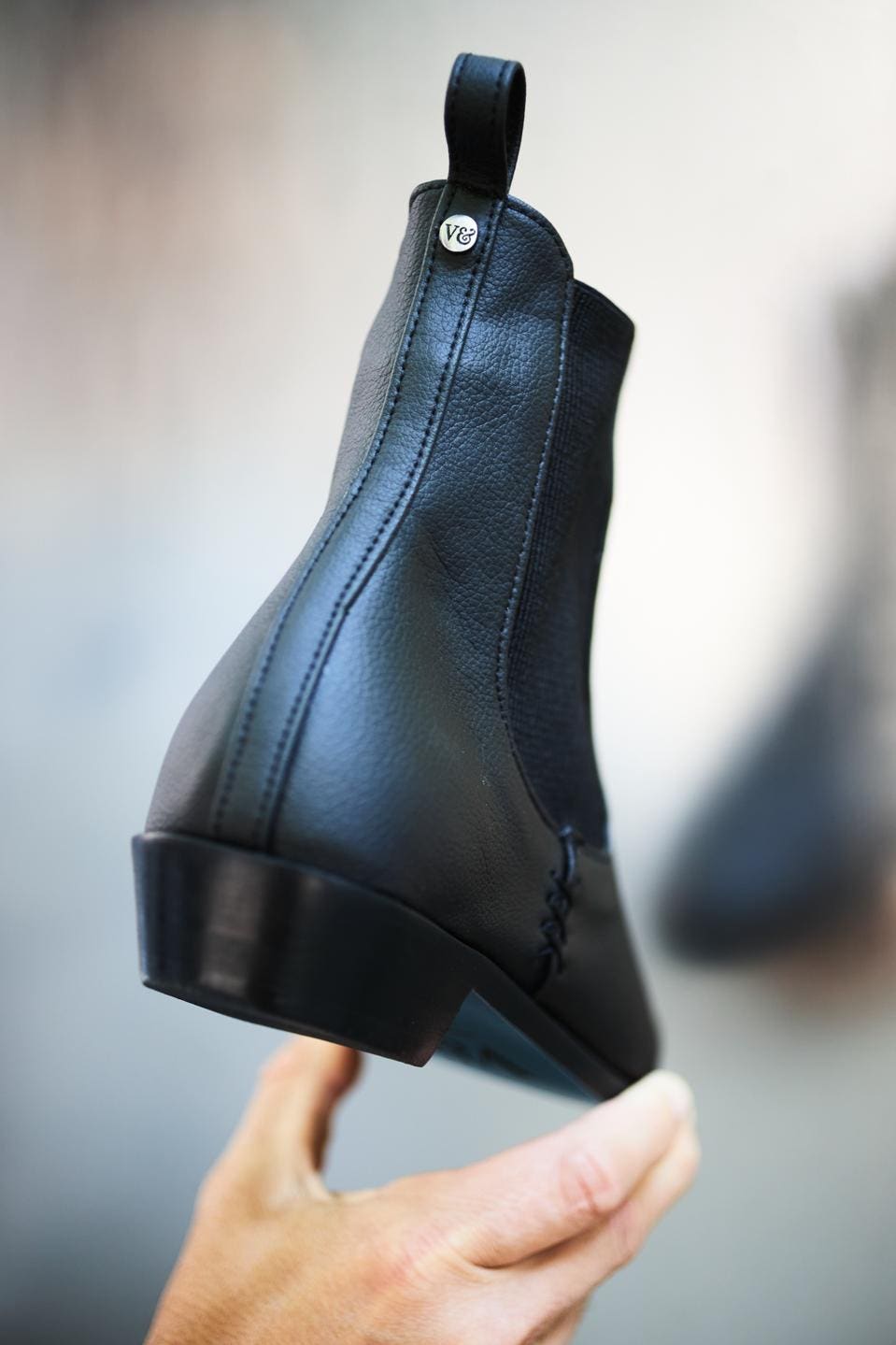Voes & Co is offering a more sustainable and more compassionate choice to consumers, and looks to
OWAIS
As veganism works its way into fashion, the lifestyle of sustainable living is a 360-degree experience for some. As the founder of Voes & Co, Desiree Dupuis saw veganism as the solution to the idea of meat culture in relation to leather production. A genuine empathy lives within her and the Voes & Co brand, with its Chelsea boot as a sentiment of ridding production lines of traditional animal leather.
Voes & Co is offering a more sustainable and more compassionate choice to consumers, and looks to
OWAIS
“I have been Vegan since 2008 since reading the book Skinny Bitch and realizing where meat comes from and the atrocity of the animal agriculture industry,” Dupuis explains in her discovery leading to her Chelsea boot production. “I like fashion, especially shoes, and wanted to create a kinder, more sustainable alternative to animal-derived leather footwear.”
Voes & Co is offering a more sustainable and more compassionate choice to consumers, and looks to
OWAIS
Voes & Co is a brand associated with the emerging sustainable footwear industry that includes recycled plastics used in 3D-printed footwear designs, for example. Brands like the cactus leather handbags from Santos by Monica have also fostered the idea. Its founder Monica Santos stated for sustainable publication PAGE magazine, “I have sourced material made from cactus because I know how much water, but also chemicals, leather, and PU. There are vegan options, but they are not good for the environment since they use plastic.”
Cactus leather handbags from Santos by Monica have also fostered the idea. Its founder Monica Santos
SANTOS BY MONICA
Santos combines various sustainable options within her production line that encourages local production. “The bag lining is from recycled water bottles, and I only use 100% organic cotton on the threads. Hand tags and tissue paper from 100% recycled materials. I try to find everything locally. Apart from the cacti fibers sourced from Mexico, everything else I source locally, or make myself.”
Brands like the cactus leather handbags from Santos by Monica have also fostered the idea. Its
SANTOS BY MONICA
Looking forward to inspiring a kinder and more sustainable fashion industry, Dupuis and Voes & Co are finding that adeptness through their vegan exploration. Dupuis says, “I believe vegan fashion is important because what we wear is the second largest part of our lives next to what we eat, and the fashion industry is the third largest contributor producing up to 10% of global greenhouse gas emissions. Not to mention the land use, water use, and toxic chemicals required to produce traditional leather. We are in a climate emergency – our planet needs us now more than ever before and we have to innovate and develop more natural materials that do not strip the earth of its resources.”
Cactus leather is significant for several reasons including its efficient carbon sinks that absorb carbon dioxide from the atmosphere. A study from a leading cactus leather producer Desserto has examined that a 14-acre cactus plantation has the ability to absorb approximately 8100 tons of carbon dioxide. Cacti also require minimal water, making them an environmentally friendly ally. Growing one kilogram of cactus mass only requires around 200 liters of water, with no need for irrigation to thrive.
“We’ve made great strides in developing compassionate options that are animal and cruelty free and now we need options that are plastic free as well,” Dupuis notes. “Although Cactus leather is not perfect it is a step in the right direction towards eliminating plastic in the vegan leather industry.”
Cactus leather, utilized by companies like Voes & Co, offers a cruelty-free and sustainable alternative to traditional leather that conserves water, requiring significantly less amount compared to traditional leather. Voes & Co aim to raise awareness about these benefits and inspire people to choose more sustainable footwear options like cactus leather.
Founder Desiree Dupuis of Voes & Co: Voes & Co is offering a more sustainable and more compassionate
OWAIS
Voes & Co looks to create plans for protecting animals and the environment beyond making quality boots. The founder, Desirèe Dupuis, is an environmentalist and is involved in other initiatives, such as Kove Ocean Foods, a sustainable food company utilizing seaweed, and Ruben’s Shoes Society, which provide education to underprivileged children.
Desiree Dupuis concludes by pointing to a 2021 study by North Mountain Consulting Group for Material Innovation Initiative. She explains, “55% of consumers want to purchase leather alternatives because of leather’s impact on animals and the environment. As well, around 80% of consumers who prefer animal leather over faux leather are open to buying plant-based leather; 25% are even enthusiastic about it.”
Voes & Co is offering a more sustainable and more compassionate choice to consumers, and looks to
OWAIS
With brands like Voes & Co proving that plant-powered alternatives to traditional leather can be stylish, and the consumer demand to back it up, a more compassionate and sustainable fashion industry looks promising.
Dupuis concludes stating, “I believe vegan fashion is important because what we wear is the second largest part of our lives next to what we eat, and the fashion industry is the third largest contributor producing up to 10% of global greenhouse gas emissions. Not to mention the land use, water use, and toxic chemicals required to produce traditional leather.”
“We are in a climate emergency – our planet needs us now more than ever before and we have to innovate and develop more natural materials that do not strip the earth of its resources.”


